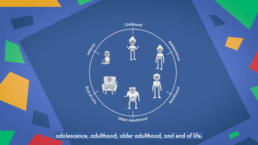Research and impact | By Shamim Quadir and Simon Watts
The healing power of music
A new book sheds light on the power of musical therapy and its increasing role in healthcare.
Music has the ability to evoke emotions and memories like almost nothing else. Hearing a song on the radio can instantly transport you back to a particular moment in time or recall a deeply personal memory. Music soundtracks all the major events in our lives.
There is a growing body of evidence that music can play a powerful role in health and social care, and according to The Music Therapy Charity there are currently more than 700 Registered Music Therapists practising in the UK. They work in a range of public health settings from paediatric hospital wards through to adult care homes, where music has been shown to be particularly effective for those living with dementia.
Musical care
A new book by academics from City and the Royal College of Music is examining the role that music listening and music-making can play in supporting physical and mental health, cognitive and behavioural development, and interpersonal relationships.
Entitled Collaborative Insights: Interdisciplinary Perspectives on Musical Care Throughout the Life Course, the book introduces the term ‘musical care’. It is a compendium of up-to-date knowledge, and acts as a resource for anybody involved in the field – from music therapists working with children with special needs; to palliative care nurses who use musical care in their practice; to academic researchers investigating the role of music in care contexts.

Our Dementia Choir
There are over 850,000 people in the UK who live with a form of dementia. While medical breakthroughs offer hope for a cure in the future, for those living with the condition today, music can improve memory, mood, behaviour and wellbeing.
The book highlights the growing recognition of performance-orientated musical care, including dementia-friendly concerts and choirs, in helping address the wellbeing of people in healthcare settings.
Our Dementia Choir began as part of a documentary created for the BBC in 2018, which saw actress Vicky McClure – best known for her role in the BBC’s Line of Duty – set out to discover the power of music in combatting dementia. Vicky cared for her late grandma following her Alzheimer’s diagnosis, and saw first-hand the calming effect of music, as well as its ability to help her grandma recall memories. Researchers believe that music can help people to recall memories due to the nature of preserved memory for song and music in the brain.
Bringing together some of the country’s leading experts, the choir took part in groundbreaking studies to measure their emotional and physical responses to singing, over three months of regular sessions. Such was the success of the trial that the choir continues to perform at events and festivals across the UK, not only improving the wellbeing of its members but also helping to raise awareness of the power of music as therapy.
Developing a resource for practitioners
Created by the book’s editors, the Musical Care website contains a number of resources including a series of animations outlining to a general audience the roles of musical care in each of the six life stages, matching the chapters of the book.
Co-editor of the book, Dr Katie Rose Sanfilippo, Presidential Research Fellow at the School of Health & Psychological Sciences at City, University of London said:
“We hope that discussion of this book brings together all those interested in musical care, including music therapists, music psychologists, music educators and the public, to explore through collaboration and interdisciplinary working, the potential place of musical care throughout our lives.”